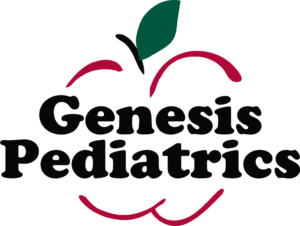Healthwise
Our Health Library information does not replace the advice of a doctor. Please be advised that this information is made available to assist our patients to learn more about their health. Our providers may not see and/or treat all topics found herein.
Dehydration in children
Dehydration occurs when the body loses too much water. This can occur if a child stops drinking fluids or loses large amounts of fluid through diarrhea, vomiting, or sweating. Dehydration decreases the amount of blood that circulates to the child's organs.
Dehydration in babies and young children can develop rapidly and be very dangerous. Watch closely for early signs of dehydration any time your child has a high fever, vomiting, diarrhea, or is too sick to drink.
A baby or young child will not be able to tell you if he or she is feeling dehydrated, so you must look for the symptoms.
Dehydration in baby and young child
Severe dehydration means:
- The baby may be very sleepy and hard to wake up.
- The baby may have a very dry mouth and very dry eyes (no tears).
- The baby may have no wet diapers in 12 or more hours.
Moderate dehydration means:
- The baby may have a soft, sunken spot on the head.
- The baby may have no wet diapers in 6 hours.
- The baby may have a dry mouth and dry eyes (fewer tears than usual).
Mild dehydration means:
- The baby may pass a little less urine than usual.
Dehydration in older child
Severe dehydration means:
- The child's mouth and eyes may be extremely dry.
- The child may pass little or no urine in 12 or more hours.
- The child may not seem alert or able to think clearly.
- The child may be too weak or dizzy to stand.
- The child may pass out.
Moderate dehydration means:
- The child may be a lot more thirsty than usual.
- The child's mouth and eyes may be drier than usual.
- The child may pass little or no urine in 8 or more hours.
- The child may feel dizzy when he or she stands or sits up.
Mild dehydration means:
- The child may be more thirsty than usual.
- The child may pass less urine than usual.
Current as of: May 1, 2025
Author: Ignite Healthwise, LLC Staff
Clinical Review Board
All Ignite Healthwise, LLC education is reviewed by a team that includes physicians, nurses, advanced practitioners, registered dieticians, and other healthcare professionals.
This information does not replace the advice of a doctor. Ignite Healthwise, LLC disclaims any warranty or liability for your use of this information. Your use of this information means that you agree to the Terms of Use and Privacy Policy. Learn how we develop our content.
To learn more about Ignite Healthwise, LLC, visit webmdignite.com.
© 2024-2025 Ignite Healthwise, LLC.


